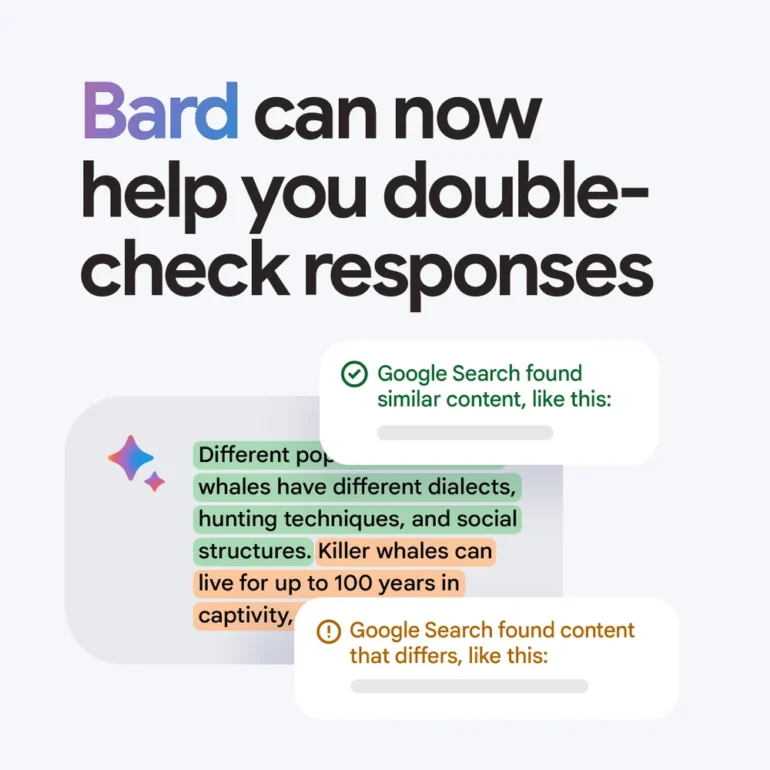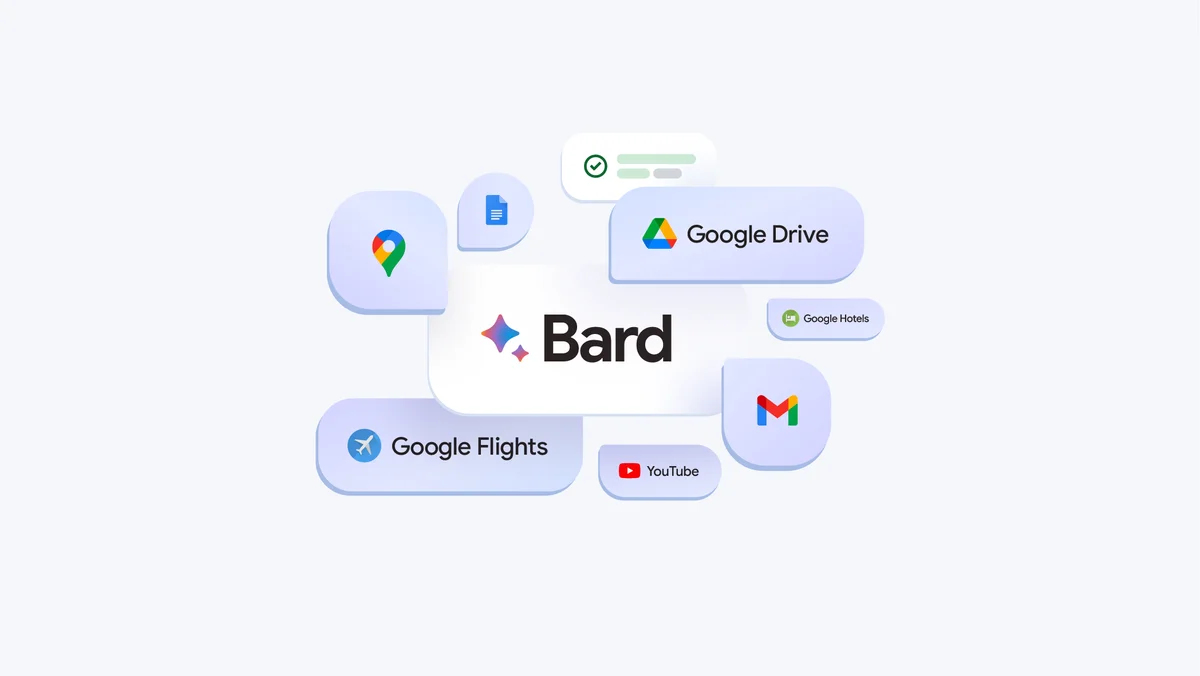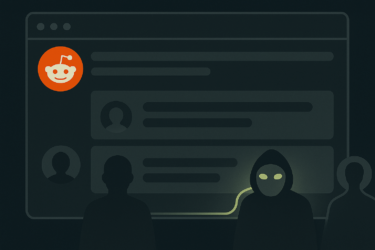In the race with ChatGPT, Google has added new features to Bard. In particular, the integration into the Google ecosystem may give it a leg up.
According to a company blog post, Google has updated its PaLM 2 language model to make Bard more versatile and useful. A few weeks ago, Google added 40 new languages to the chatbot and Google Lens integration, so prompts can now consist of text and images.
However, Lens was initially only available in the English version of Bard. Google is now expanding the feature to all supported languages. Similar to the ChatGPT feature, users can now share and link to Bard conversations.
Google rolls out AI fact-checking
As the world's largest search engine, Google is in a unique position as a gatekeeper to information on the Internet. One of the ways Google intends to live up to this responsibility is with an AI-based fact-checking tool.
The tool, which is initially available in English only, allows users to check statements against various Internet sources with a single click. Detailed research will have to show how accurate these checks are.

In a test by researcher Aleksandra Urman, the new tool refused to answer a question in Russian about whether Vladimir Putin is a war criminal.
Bard was updated today and now has a button to fact-check certain responses - e.g. its response to a question if Putin is a war criminal. However, it still refuses to reply to this question in Russian at all. See screenshots, coverage below or our preprint https://t.co/dQp4unZVUA https://t.co/Clrpt2GP1w pic.twitter.com/f6ng4vpW8p
- Aleksandra Urman (@AUrman21) September 19, 2023
Google connects Bard to its ecosystem
For English-speaking users, Google has also added the ability to connect Bard to various Google services. According to the blog post, this allows the AI to find relevant information from apps like Gmail, Docs, Drive, Maps, YouTube, Google Flights, and Hotels and incorporate it into a response. It can also consider data from multiple apps at once.
For example, if you’re planning a trip to the Grand Canyon (a project that takes up many tabs), you can now ask Bard to grab the dates that work for everyone from Gmail, look up real-time flight and hotel information, see Google Maps directions to the airport, and even watch YouTube videos of things to do there — all within one conversation.
Yury Pinsky, director of product management for Bard at Google
Video: Google
According to Reuters, Google is trying to catch up in the competition with OpenAI's ChatGPT. ChatGPT grew significantly faster than Bard after its release. By connecting to Google services used by millions of people worldwide, Google is giving itself a unique competitive advantage.
Google assures that when you use Bard as part of a paid Workspace membership, personal user data from Gmail and the like will not be seen by human evaluators for AI training or used for advertising.
Update: Google has emailed us to say that Google does not collect personal data with Bard on either free or paid accounts, does not show that data to human reviewers, and does not use it for advertising or profiling. The Bard integration for Workspace currently only works for personal accounts, not corporate accounts.





